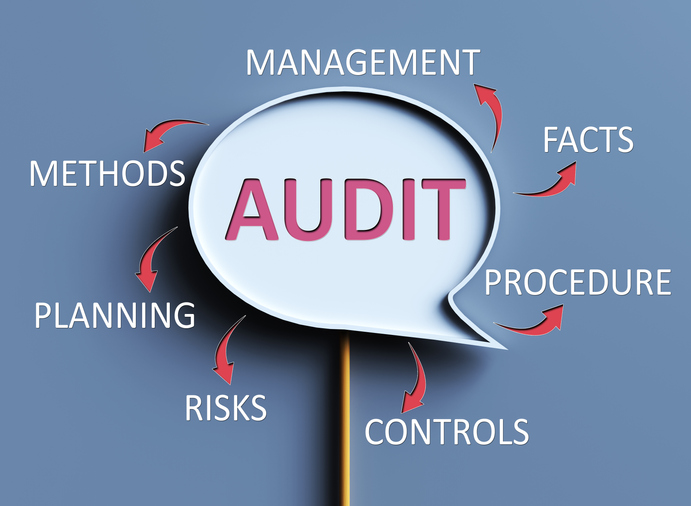What does the recent OTA ruling tell you about a California tax audit? What can we learn from the results of an investigation by the Office of Tax Appeals (OTA) into the practices of a California tax agency? Why do you need an experienced San Diego tax attorney if you are facing an audit from the Franchise Tax Board (FTB), the California Department of Tax and Fee Administration (CDTFA) or the Employment Development Department or EDD? Why isn’t it ever in the best interests of a taxpayer or business owner to speak with a California tax auditor themselves?
The Office of Tax Appeals or OTA Rules CDTFA Audit Methodology was Arbitrary
The case in point involves the Appeal of Colambaarchchi (OTA Case No. 21017152; 2023-OTA-302) and questions regarding the process applied by the CDTFA to determine “unreported” sales taxes. Colambaarchchi was operating two retail stores when the CDTFA decided to conduct a sales tax audit for tax years 2016, 2017, 2018 and 2019.
Instead of using a consistent process or Generally Accepted Accounting Principles (GAAP) to evaluate the retailer’s actual sales and the collection and remittance of California sales tax, the OTA used a variety of arguments and methodology across four years of tax returns to determine “auditable tax sales” and ultimately the alleged resulting tax liability.
The CDTFA literally applied different analysis and calculations to each separate tax year to maximize the amount of unpaid sales tax and associated penalties it alleged the retailer owed the State of California. The CDTFA used the company’s bank deposits to establish gross sales for tax year 2016. However in 2017, the CDTFA decided to use information from the company’s federal income tax return to determine gross sales receipts. The CDTFA then returned to reliance upon bank deposits for tax year 2018 and the portion of 2019 covered by the audit.
Once the CDTFA issued the “notice of determination” at the end of the audit, the retailer took action to appeal the CDTFA process and decision.
The California Office of Tax Appeals became involved early in the appellate process. Why did the CDTFA use multiple processes to determine gross sales receipts for different tax years within the same audit? The initial legal burden in the appeal fell upon the CDTFA to establish why it had employed two different methodologies for determining gross sales receipts within the same audit. Audit procedures must be “reasonable and rational” in the State of California.
In essence, the CDTFA argued the use of bank deposits was less accurate in tax year 2017 than in the other years evaluated during the audit. The OTA rejected the assertions of the CDTFA and went on to say “This arbitrary selection made solely to increase unreported tax sales is not reasonable and rational. Where CDTFA alternates between indirect audit methods because one method produces a higher result, CDTFA is no longer attempting to estimate the correct measure of tax but instead is arbitrarily increasing the tax measure.”
The fact that the CDTFA was found to be employing audit procedures in order to generate the highest amount of taxes owed in an audit is the lesson we all need to learn here.
What does the resulting OTA ruling tell you about a California tax audit?
What does the recent OTA ruling tell you about a California tax audit? California tax authorities and their auditors have a responsibility to our citizens and businesses to assess and collect accurate and fair taxation. They do not have the authority to simply arbitrarily decide to use any method possible to generate the highest possible result in a tax audit. This is why you need an experienced San Diego tax attorney if you are facing an audit from the Franchise Tax Board (FTB), the California Department of Tax and Fee Administration (CDTFA) or the Employment Development Department or EDD?
Your tax attorney should hold auditors to “reasonable and rational” standards based upon US and California tax laws and GAAP. There are many highly skilled and exceptional tax auditors who reflect the spirit and intent of the tax code. There are also, unfortunately, many cases where the auditor is not either an accounting or tax expert and your tax attorney must help them to not only understand the correct “reasonable and rational” processes and applicable GAAP methodology, but stand up for and defend your best interests as a taxpayer.
It may also surprise you to learn that US and California taxpayers are not required by law to communicate directly with an auditor. In fact, most taxpayers will provide far too much information in response to an auditor’s inquiries. The taxpayer is simply attempting to look honest and open. Unfortunately, the auditor can simply use the information provided to expand the scope of the audit and increase the amount of the check the taxpayer will ultimately be required to write at the end of the audit.
Ask your tax attorney, Janathan Allen, about the protections of the attorney-client privilege and how this provides additional protections for the taxpayer during an audit when compared to working with a CPA or other tax professional.
We invite you to learn more about the integrated tax, legal, accounting and business consulting services of Allen Barron and contact us or call today to schedule a free consultation at 866-631-3470.





